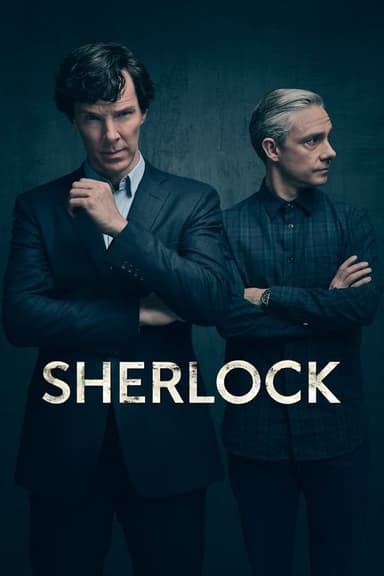
The Undoing
2020 • Crime, Drama, Mystery • TV-MA
Grace and Jonathan Fraser are living the only lives they ever wanted. Overnight a chasm opens in their lives: a violent death and a chain of terrible revelations. Left behind in the wake of a spreading and very public disaster, Grace must dismantle one life and create another for her child and her family.
Why you should read the novel
If you were captivated by The Undoing, you owe it to yourself to explore its gripping literary origin, Jean Hanff Korelitz's novel You Should Have Known. In the book, you’ll experience a far deeper psychological portrait of Grace, the protagonist, whose voice and inner turmoil are even more vivid on the page than on the screen. Korelitz’s intricate prose invites you to immerse yourself in Grace’s unraveling world and the subtleties of self-deception, privilege, and trust.
Reading the source novel gives you space to question and probe, following Grace as she reexamines every aspect of her life and marriage. The story unfolds gradually, letting you savor details and revelations that are often condensed or reinterpreted for television. This allows a richer understanding of Grace’s motivations, insights into supporting characters, and a more profound emotional journey.
Furthermore, the book provides a contemplative experience untouched by the visual gloss of TV. While the series offers sumptuous sets and tense performances, the novel excels in psychological depth and literary craft. For readers who crave introspection and nuance, Korelitz’s book stands as a more thought-provoking and rewarding exploration of its themes.
Adaptation differences
One of the chief differences between The Undoing and You Should Have Known lies in their plot structure and pacing. In the novel, the murder mystery and its implications are more of a slow-burning psychological evolution for Grace, whereas the series emphasizes suspenseful whodunit elements and dramatic courtroom scenes. The TV adaptation adds new layers of intrigue—such as cliffhangers, red herrings, and shocking reveals—that heighten its thriller feel but deviate from the book’s introspective tone.
Another key variance is the characterization of Grace. On screen, Grace, portrayed by Nicole Kidman, is more of a mystery to viewers; her internal struggles are shown through visual cues and dialogue. In the book, however, readers are privy to her candid, sometimes messy inner monologue. This richer psychological portrait changes how we perceive her choices and culpability, making the novel’s exploration of denial and self-deception more explicit.
The adaptation also transforms the roles of other characters and the narrative focus. The series expands the part of Grace’s husband, Jonathan, presenting him as enigmatic and complex, whereas in the book, his backstory and motivations are revealed differently. The show also introduces or amplifies side characters—such as the defense attorney and Grace’s father—for dramatic effect, sometimes diverging from their literary roots.
Finally, the endings and underlying messages differ. The novel focuses on self-discovery, accountability, and moving forward after betrayal, offering closure through Grace’s personal growth. In contrast, the series favors shocking confrontation and spectacle, leaving certain moral ambiguities unresolved. Viewers of The Undoing are left with lingering questions, while readers of Korelitz’s novel are offered a more contemplative, resolved conclusion.
The Undoing inspired from
You Should Have Known
by Jean Hanff Korelitz



